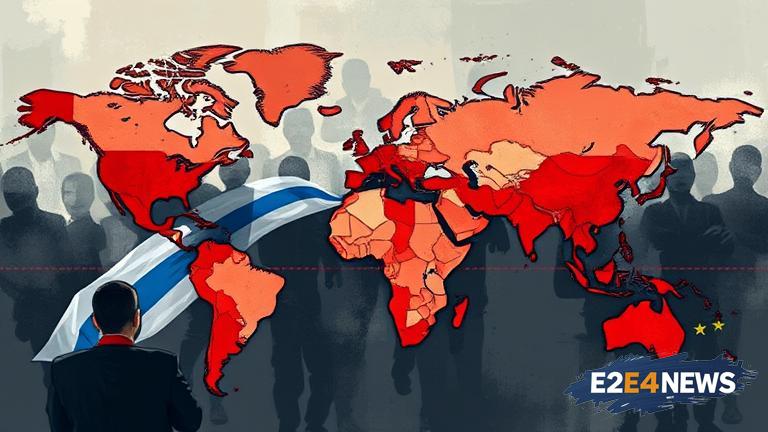The anti-Semitism crisis has been escalating globally, with increasing incidents of hate crimes, vandalism, and discrimination against Jewish individuals and communities. This surge in anti-Semitic activities has been attributed to various factors, including the rise of extremist ideologies, social media platforms, and the lack of effective measures to combat hate speech. The crisis has been particularly pronounced in Europe, where Jewish communities have faced numerous attacks, including the recent surge in anti-Semitic violence in France and Germany. The situation has also been exacerbated by the COVID-19 pandemic, which has created an environment conducive to the spread of conspiracy theories and hate speech. Furthermore, the crisis has been fueled by the growing influence of radical Islamist and far-right groups, which have been promoting anti-Semitic ideologies and inciting violence against Jewish communities. The international community has been criticized for its inadequate response to the crisis, with many governments failing to take decisive action to protect Jewish communities and combat anti-Semitism. In response to the crisis, many experts have called for a comprehensive approach that includes education, legislation, and community engagement. This approach should involve educating people about the dangers of anti-Semitism, promoting tolerance and understanding, and implementing effective laws and policies to combat hate speech and discrimination. Additionally, community engagement and outreach programs can help to build bridges between Jewish and non-Jewish communities, promoting mutual understanding and respect. The role of social media platforms in perpetuating anti-Semitism has also been highlighted, with many calling for these platforms to take greater responsibility for removing hate speech and promoting tolerance. The crisis has also sparked a debate about the definition of anti-Semitism, with some arguing that it should be defined more broadly to include criticism of Israel and Zionism. However, others have argued that such a definition could be used to stifle legitimate criticism of Israeli policies and actions. The situation has been further complicated by the rise of anti-Zionism, which has been linked to anti-Semitism by some, but seen as a legitimate form of criticism by others. Ultimately, addressing the anti-Semitism crisis will require a sustained and collective effort from governments, civil society, and individuals around the world. It will also require a nuanced understanding of the complex factors driving the crisis, as well as a commitment to promoting tolerance, understanding, and respect for all communities. The consequences of inaction will be severe, with the potential for further violence, discrimination, and marginalization of Jewish communities. Therefore, it is essential that the international community takes immediate and decisive action to address the crisis and promote a culture of tolerance and respect.
